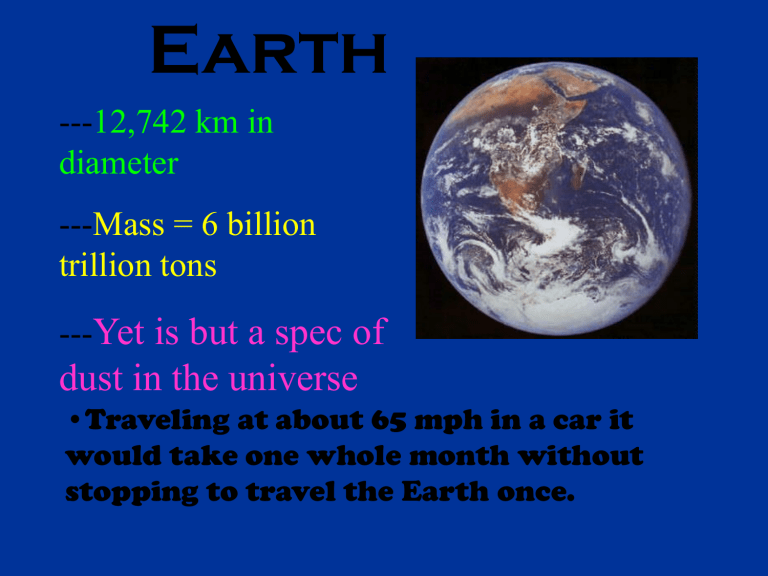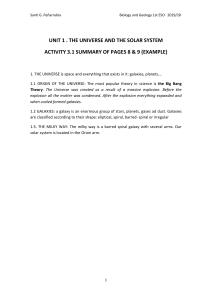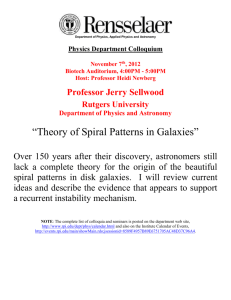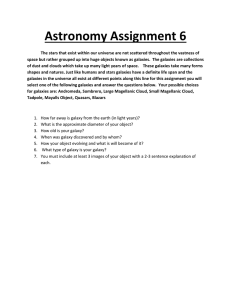
Earth ---12,742 km in diameter ---Mass = 6 billion trillion tons ---Yet is but a spec of dust in the universe •Traveling at about 65 mph in a car it would take one whole month without stopping to travel the Earth once. What is the Universe? •Everything that exists today, in the past & in the future •Mostly space, but made up of bodies floating in space, planets & their moons, stars & galaxies How is Distance in Space Measured? •Objects in space are SOOOOOO far apart that measuring in miles or kilometers is silly •Measured in light years instead Light Year •Isn’t a measurement of time, it measures distance •Amount of distance light travels in a year •6 trillion miles which is about 186,000 miles a SECOND Light Year Conversion Table Kilometres 9,460,528,404,846 Miles 5,878,499,812,499 Light Year •Distance to the nearest star is 25 trillion miles away or 4.3 light years •Our sun is only 8 light minutes from us •Light travels so fast that it can go all the way around Earth 7 ½ times in just 1 second Galaxies Universe organized into millions of galaxies •Galaxy: large groups of stars held together by gravity •Galaxies are put into clusters & then super clusters to identify them by names •Every Galaxy is unique like a fingerprint or a snowflake •But all galaxies share some characteristics & are grouped by their shape into one of four categories. 4 types of galaxies Spiral Barred Spiral Elliptical Irregular Spiral Galaxies •Giant, flat pinwheels with many arms that spin around a central core. Examples: Milky Way, Andromeda •it has three main components: a disk, in which the solar system resides, a central bulge at the core, and an all encompassing halo. Milky Way •Our galaxy •100,000 light years across & 6000 light years thick •Seems huge, but if the universe was the size of a football stadium, the Milky Way wouldn’t even be as big as a pinhead •Named because of the band of milky light we see across the sky on a clear, dark night Spiral Galaxies NGC 4586 NGC 1232 NGC 4501 Spiral Galaxies Andromeda Andromeda These pictures are exposed using only the X-rays that are given off from Andromeda Barred Spiral •Large bar running down middle • Arms trail from the bar like water from a sprinkler •Occurs in about 1/3 of spiral galaxies Elliptical Galaxies • Vary in shape from nearly flat disks to spherical (egg shaped) to nearly circular to flat disks •Home to only older stars •Most galaxies are elliptical Elliptical Galaxies Irregular Galaxies • No definite shape • Formed when galaxies collide or come close and their gravitational forces interact. •Another source may be very young galaxies that have not yet reached a symmetrical state. Irregular Galaxies Large Magellanic Cloud, Small Magellanic Cloud 163,000light years away 200,000 light years away Local Group • Family of galaxies including Milky way & its neighbors, • Local groups only take up a tiny amount of space in the universe •There are tens of billions of other galaxies





